Welcome to the Global SSB Tax Database
The Global SSB Tax Database is an open source of data on sugar-sweetened beverage (SSB) tax designs worldwide. It is intended to support research, inform policy decisions, and guide the development of SSB taxation best practice. Scroll down to explore our interactive data visualizations, maps and stories.
Access the full database (latest version August 2023).
Updates to the database are uploaded biannually, in February and August.

SSB taxes at a glance
SSB taxes are in effect across all World Bank regions, including national level taxes in more than 100 countries and territories. Coverage varies by region and income group. Below is a tile world map where each national level SSB tax is represented by a single tile of the same size. This way of looking at the world helps taxes from smaller countries to be more visible than on a traditional world map.
Summary map of SSB tax designs
Read our data stories
Check out our interactive data stories showcasing data highlights and key features of the database.
This first in a series of stories introducing the Global SSB Tax Database outlines the purpose of the Database and explores some of its key features and functionalities.
I

This second in a series of stories introducing the Global SSB Tax Database examines global population coverage of SSB taxes and the products covered by these taxes.
II

This third in a series of stories introducing the Global SSB Tax Database examines the design of existing SSB taxes worldwide, focusing on tax type and structure.
III

Resource library
Explore the library for more resources on SSB taxation, or learn more about the World Bank's work on health, nutrition, and health taxes.
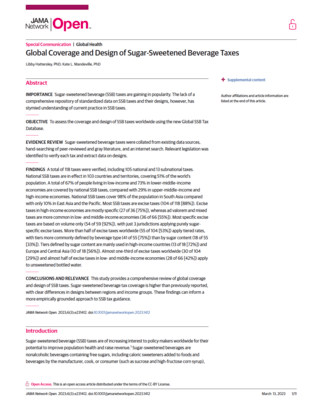
Global Coverage and Design of Sugar-Sweetened Beverage Taxes
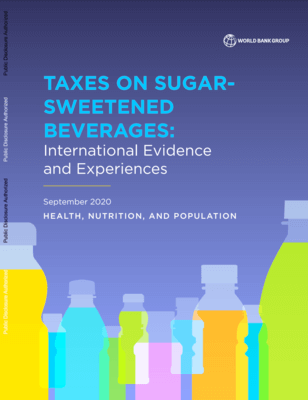
World Bank Report: Taxes on Sugar-Sweetened Beverages: International Evidence and Experiences
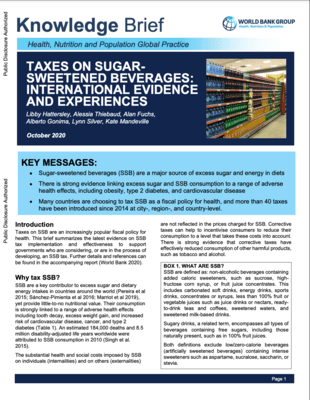
World Bank Knowledge Note: Taxes on Sugar Sweetened Beverages International Evidence and Experiences
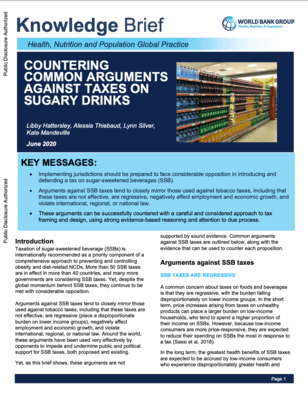
World Bank Knowledge Note: Countering Common Arguments Against Taxes on Sugary Drinks
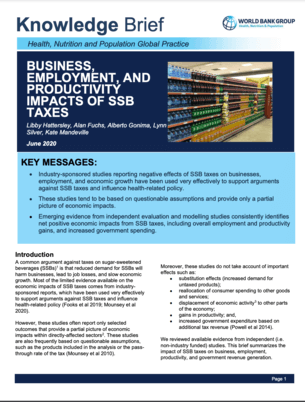
World Bank Knowledge Note: Business, Employment, and Productivity Impacts of Sugar-Sweetened Beverages Taxes
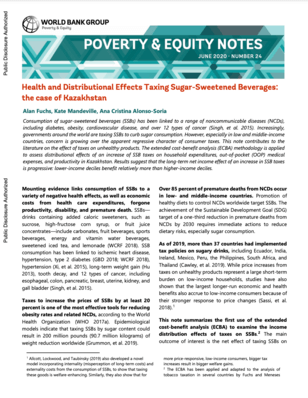
World Bank Knowledge Note: Health and Distributional Effects Taxing Sugar Sweetened Beverages the case of Kazakhstan
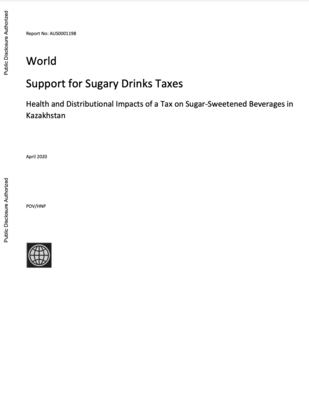
Health and Distributional Impacts of a Tax on Sugar-Sweetened Beverages in Kazakhstan
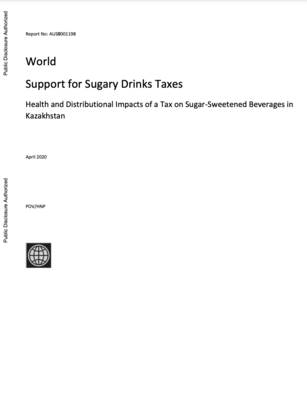
The welfare and distributional effects of taxing SSB to reduce the risks of obesity in Ukraine
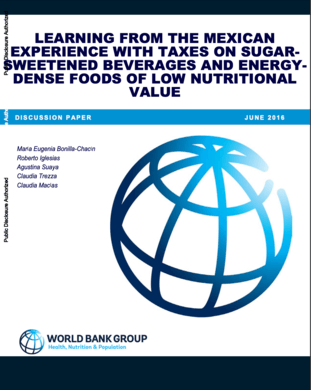
Learning from the Mexican Experience with Taxes on Sugar-Sweetened Beverages and Energy-Dense Foods of Low Nutritional Value: Poverty and Social Impact Analysis
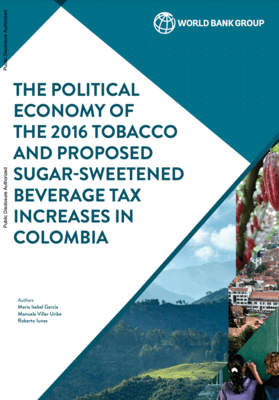
The Political Economy of the 2016 Tobacco and Proposed Sugar-Sweetened Beverage Tax Increases in Colombia

Why a Global SSB Tax Database?
SSB taxes are a relatively new public health policy tool and there is less consensus on best practice for their design compared to tobacco and alcohol taxes. Yet, there is significant and growing interest in SSB taxes amongst policy makers worldwide for their potential to improve population health and raise revenue, and the number of jurisdictions implementing SSB tax policies is increasing rapidly. To date, understanding of current practice in SSB taxation worldwide has been stymied by the lack of a centralized source of data on SSB tax designs. The Global SSB Tax Database was developed to address this gap.

Access the data
Access and download the full database.
While all reasonable efforts are made to ensure the Global SSB Tax Database is comprehensive, accurate, and up to date, there may be unintended exclusions or errors. The number of implemented SSB taxes changes frequently and design changes to existing tax policies are common. The Database will be updated biannually with verified information on new SSB tax developments and corrections where new information is received.
Citation
World Bank Group. 2023. Global SSB Tax Database. Washington, DC: World Bank Group. License: Creative Commons Attribution 4.0 International License (CC BY 4.0).
About the project
The Global SSB Tax Database was developed and is maintained by a team led by Kate Mandeville (Senior Health Specialist, HEAHN), with data collection and analysis by Libby Hattersley (Nutrition Specialist). The work was funded by the World Bank Group’s Tackling of Non-Communicable Diseases Challenges in Low- and Middle-Income Countries Multi-Donor Trust Fund (Trust Fund No. 072759), supported by Access Accelerated. Web development and data visualizations were created by Data Whale, with support from the World Bank Cartography Unit, Development Economics Group, External and Corporate Relations, and ITSES.